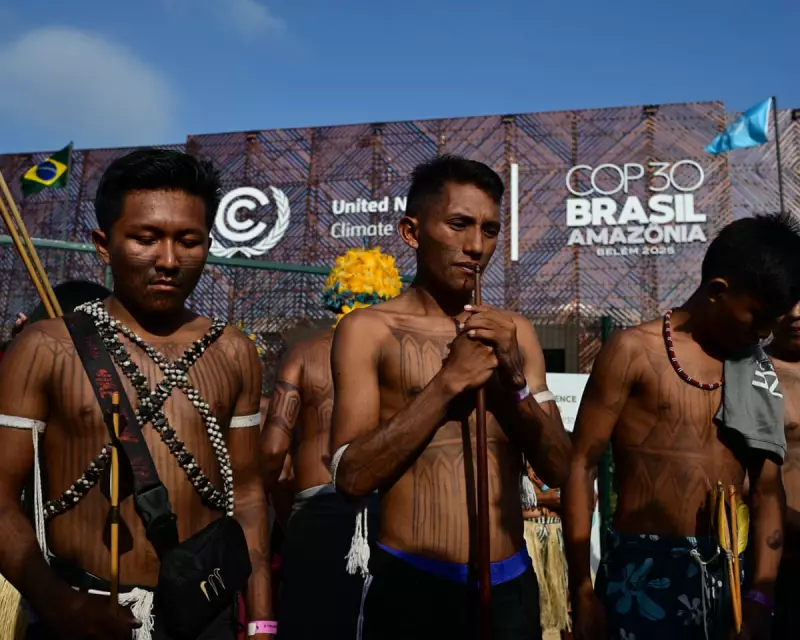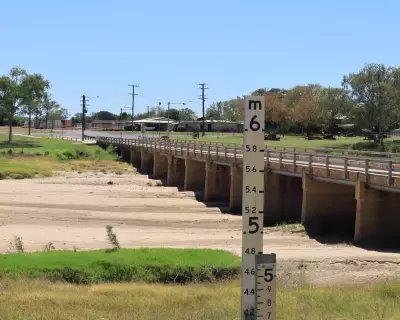
Thousands of diplomats, activists, and lobbyists have descended upon the sweltering tropical city of Belém, at the mouth of the Amazon, for the Cop30 climate talks. Yet, as the summit commences, it is already shrouded in controversy and protest.
Indigenous people from the Munduruku group staged a powerful demonstration at the entrance to the conference, protesting against infrastructure projects they believe pose a direct threat to their ancestral lands. Their presence underscores the high stakes for those who depend most on meaningful climate action.
A Process Under Scrutiny
When Brazil was awarded hosting duties three years ago, hopes were high that this Amazonian summit could be a turning point in the global fight against climate breakdown. However, fears are mounting that this 30th edition of the UN climate negotiations will repeat the disappointments of previous years.
Patrick Galey, head of fossil fuel investigations at Global Witness, captured a prevailing sentiment, stating, "The main problem, I would say, is the lack of urgency." This is not an isolated view. Last year, an influential group of climate policy experts, including former UN secretary general Ban Ki-moon and former UN climate chief Christiana Figueres, declared the Cop process "no longer fit for purpose."
Structural Imbalances and Fossil Fuel Influence
The core of the issue lies in the profound inequality between nations. The Cop process, designed as a consensus-based forum where all countries have a voice, is in reality dominated by the wealthiest.
Asad Rehman, chief executive of Friends of the Earth England, Wales and Northern Ireland, highlighted the disparity: "If you're the US or the UK or the EU, you'll have people working 365 days a year on the climate negotiations... Then let's say you're Lesotho. You're sending one negotiator or two negotiators." This imbalance in resources creates an unlevel playing field where the concerns of developing nations, for whom the climate crisis is most existential, are often sidelined.
Compounding this problem is the overwhelming presence of fossil fuel lobbyists. Cop28 hosted nearly 2,500 fossil-fuel lobbyists—more than the combined delegations of many vulnerable nations. Their sheer numbers, according to critics, transform part of the summit into a business fair that dilutes ambition and slows progress.
A System Failing to Deliver
Albert Norström, an associate professor at the Stockholm Resilience Centre, offered a nuanced critique. "The Cop process has delivered what it was designed for: diplomacy and consensus," he said, pointing to achievements like the Paris Agreement. "But the world has moved into the implementation decade, and here the Cop is lagging badly."
Emissions continue to rise, carbon sinks are weakening, and the critical 1.5C warming threshold is likely to be breached within years. The architecture built for negotiation is failing to turn promises into tangible performance.
Cibele Queiroz, director of knowledge at the Global Resilience Partnership, acknowledged the process has achieved important milestones, including the establishment of the loss and damage fund. "But with this said," she added, "the process is being too slow and inefficient, and not able to properly address the striking inequalities on who bears the responsibility and the burden of climate change."
For Rehman, the problems at Cop reflect wider global power dynamics. The outcome is never in doubt when developing countries, seeking grants for adaptation, are opposed by economic powerhouses like the US or EU. The will of smaller nations is too often overridden, leaving many to describe the outcomes of these summits as a "staggering betrayal."





